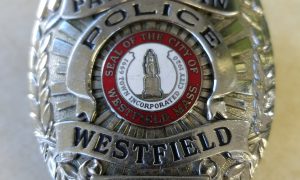WESTFIELD – The state Department of Revenue has certified the amount of “free cash” available to the city as just under $2.5 million.
Free cash is comprised of funds remaining in the previous year’s budget. The DOR certification process ensures those remaining funds were not incumbered for debt or services.
Communities are “free” to use those funds in a variety of way, to augment the current fiscal year budget, to offset unanticipated expenditures, pay for winter snow and ice removal and to increase the city’s reserve funds.
The DOR has certified the city’s free cash at $2,453,000.
Mayor Daniel M. Knapik said Tuesday that the issue of dealing with free cash is always a moving target. This year is no exception, as unusual events, such as the Oct. 29 storm, put additional stress on limited municipal financial resources.
“There are always the same issues at this time of the year,” Knapik said. “We funded $400,000 for snow and ice removal (budget), but that’s all gone already because of the October storm. The other big issue is will we need to use stabilization funds to build the (2013) budget.”
“I’d like to dump $1.4 million into stabilization. I’d be happy to finish the budget cycle in June with $7 million in reserve and available for appropriation” Knapik said.
Some of the proposed free cash will be used to buffer the present budget, while other funding is needed to maintain services or to comply with new state requirements.
Knapik said that he plans to propose to the City Council a $500,000 expenditure from free cash for the city’s emergency dispatch services. That money will allow compliance with a new state law that goes into effect on July 1, 2012, the first day of the 2013 fiscal year.
Knapik said that the city will comply with the new law by relocating emergency dispatch services from the police and fire headquarters to the city’s Technology Center on Apremont Way, next to Barnes Regional Airport.
“The new law requires communities to have emergency medical dispatchers, people who can talk a caller through an emergency until help arrives,” Knapik said. “We will also be required to have two dispatchers per shift, which means we have to hire four people, and to purchase some additional equipment.
Knapik said he also will request the council to approve the use of $125,000 to purchase a mechanic’s truck for the Fire Department, as well as two four-wheel drive vehicles for that department’s command staff.
The free cash funds will also be used to begin to address the need to rotate the city’s aging fleet of rubbish and recycling trucks over the next five years.
An independent Ad Hoc Committee evaluated the city’s entire solid waste program last year, assessing the benefits of outsourcing solid waste collection against keeping those programs in-house. That committee concluded that at the present time the best option was to continue to operate solid waste as a city function.
A major consideration in that assessment is the need to replace the fleet of trucks, a cost projected at more than $1 million.
Knapik will proposed to the City Council that a five-year plan be implemented, securing a new rubbish truck and a new recycling truck each year through a lease program.
“The city will lease the trucks, at a cost of about $100,000 a year for the two trucks,” Knapik said. “At the end of that five-year lease the city can purchase the trucks for a dollar. We’re getting a pretty good deal because of the low-interest rates available right now.”
That cyclic lease approach will increase by $100,000 a year and will reach $500,000 in year five, then decline by $100,000 a year, yielding a fleet of 10 city-owned trucks at the end of the lease program.
Knapik will also request the council to replace $200,000 in the School Department maintenance account, funds that were allocated in the 2011 budget, but not incumbered before the end of that fiscal year.
“There were a number of school maintenance projects in the (2011) budget, but that money was lost (to free cash) because the department could not secure contracts to incumber those funds,” Knapik said. “The June 1 tornado forced the department to shift its focus, so we’re just returning those funds to do the projects this year.”
The cost of the Oct. 29 storm, when recovery work is finally completed, is projected at between $600,000 and $700,000. Knapik plans to use the $380,000 in supplemental state aid and $109,000 from the Federal Emergency Management Agency reimbursement to the city for the January blizzard for the storm response expenditures.
The largest variable for how the free cash is used may be the weather this winter. Communities are allowed to deficit spend for snow and ice removal. The city has traditionally used either free cash or funds remaining in departments at the end of the year to pay that deficit.
“We can always hope for a mild winter,” Knapik said.






